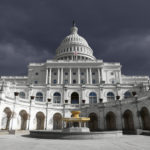 It is no secret I have a fair amount of animus toward the CFPB, which, since its creation in 2010, regarded itself as “the new sheriff in town” and proceeded to “push the envelope” in the exercise of its enforcement practices. One of its more offensive practices was its use of “regulation by enforcement”. Simply stated, it would figure out some business model it didn’t like, but wasn’t illegal per se’, and bring an enforcement action against the company or companies for doing something that had heretofore, been regarded as legal.
It is no secret I have a fair amount of animus toward the CFPB, which, since its creation in 2010, regarded itself as “the new sheriff in town” and proceeded to “push the envelope” in the exercise of its enforcement practices. One of its more offensive practices was its use of “regulation by enforcement”. Simply stated, it would figure out some business model it didn’t like, but wasn’t illegal per se’, and bring an enforcement action against the company or companies for doing something that had heretofore, been regarded as legal.
Once it beat the companies into submission through fines and negative publicity, the rest of the industry would take the hint, and change, go out of business, or fail. In Russia that might be an acceptable M. O., but in the United States, I’d like to think that such overreach would be frowned upon. However, in the past, there was little widespread condemnation, even though the practice was little more than the ex post facto enforcement of what it decided, sua sponte, what the law should be. And how could there be any real pushback? The Bureau was a law unto itself; it was run by a single administrator, and did not derive it’s funding through congressional appropriation. In short, it could figuratively stick its finger in the eye of any business with impunity.
Not so today. Now, in the words of a recent Wall Street Journal article, here, the CFPB has “pushed its last envelope”. For more on what we can look forward to in 2018, see links here, here, and here. ~PCQ



![Fotosearch_cb008926[1]](https://q-law.com/wp-content/uploads/2014/05/Fotosearch_cb0089261-150x150.jpg)





